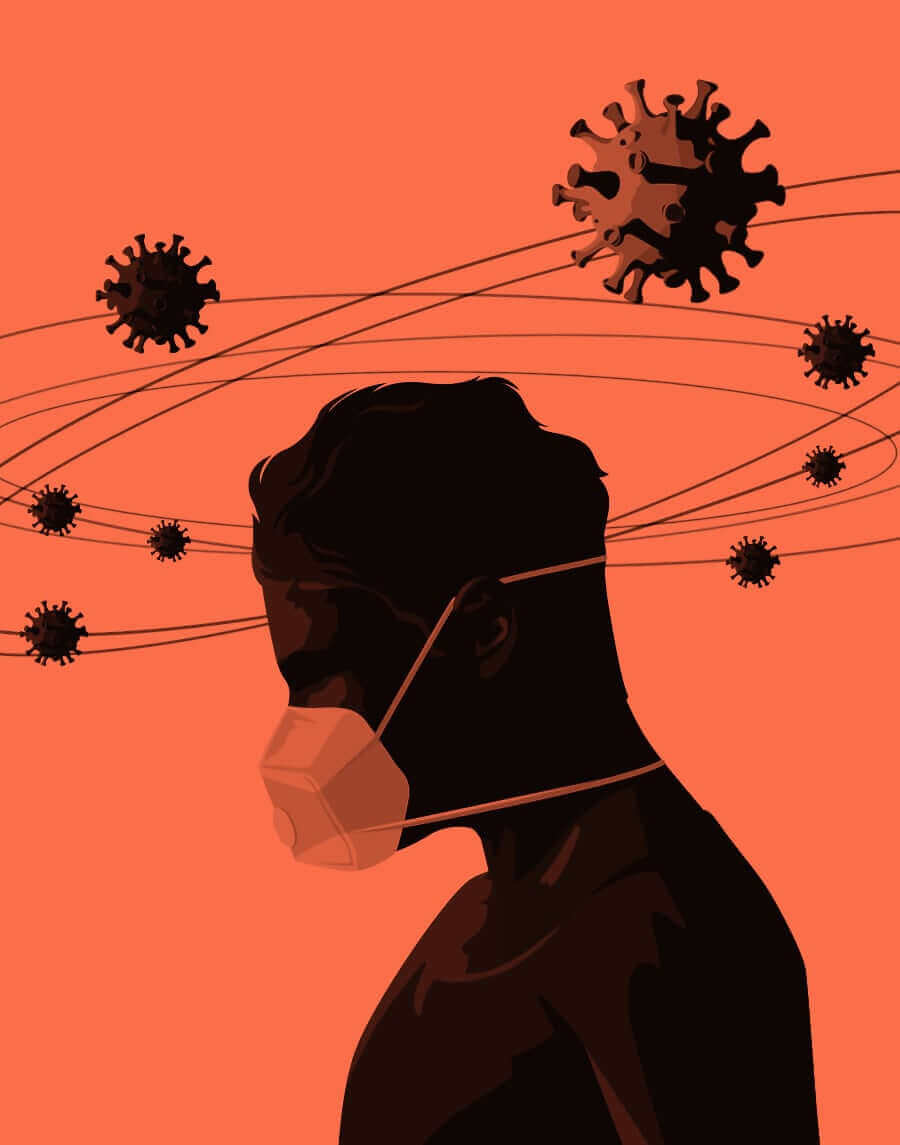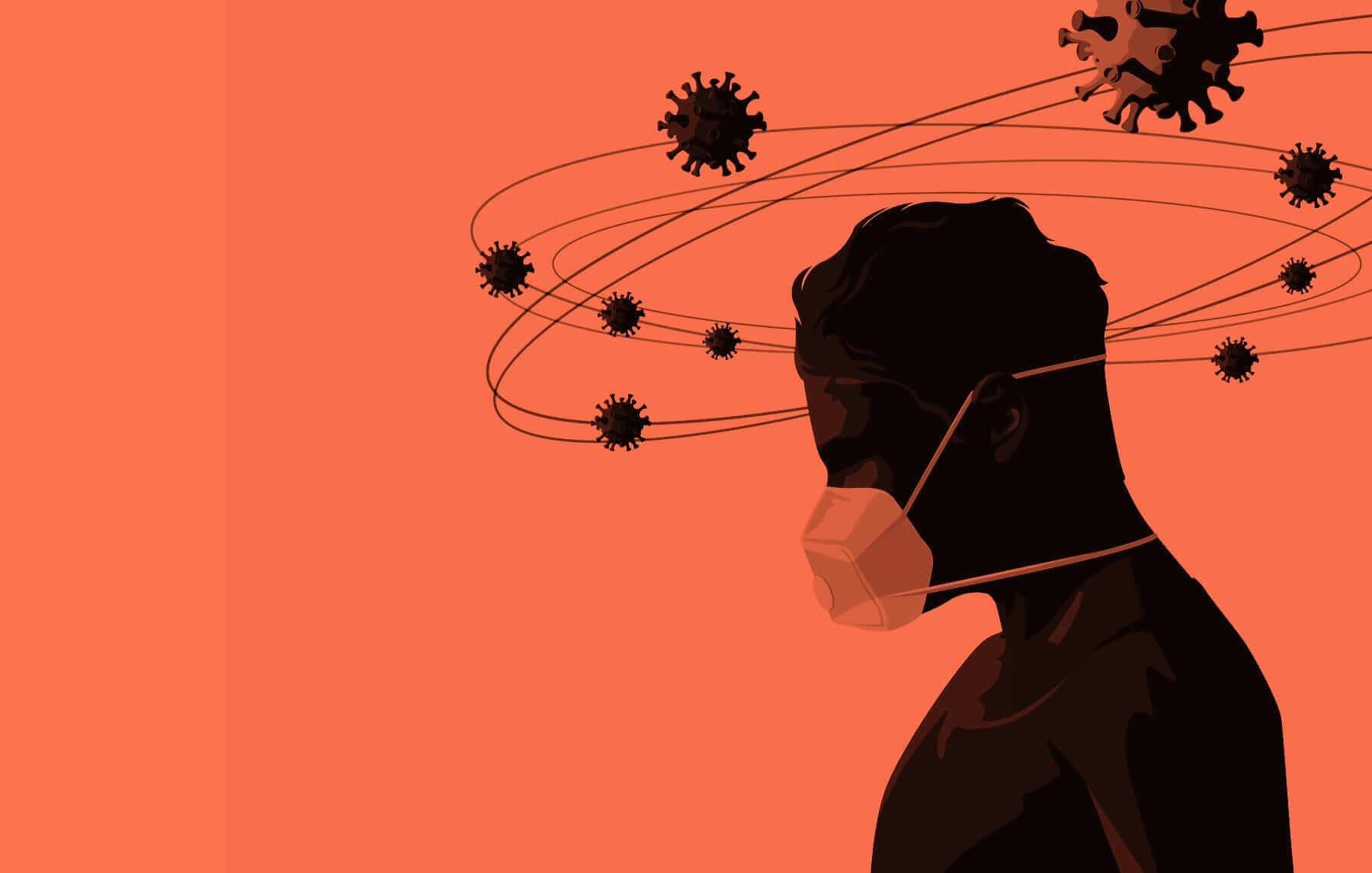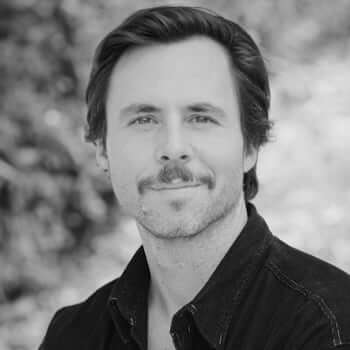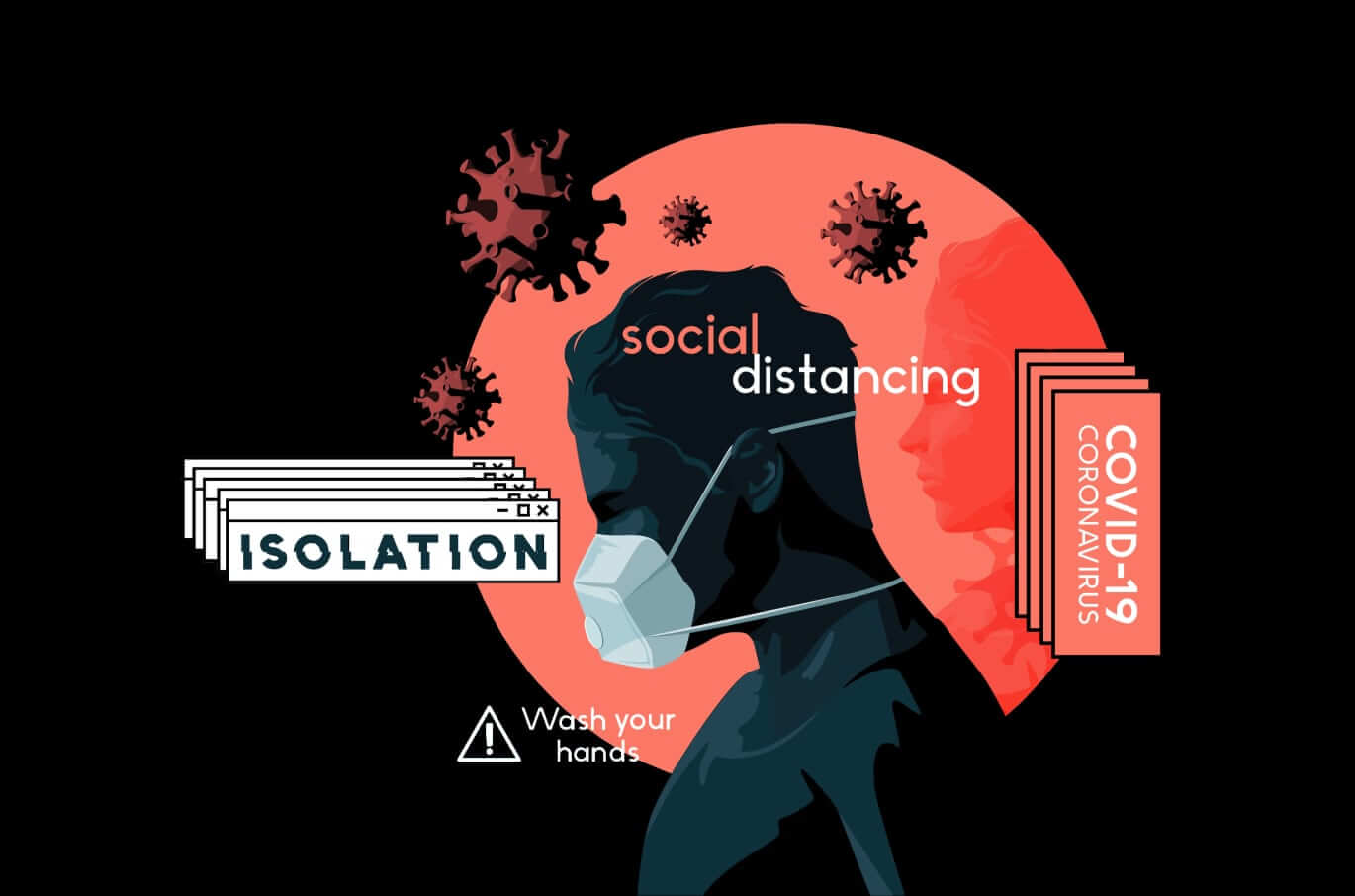“
As humans with giant brains, we always have a choice: we can see things as working for us, or against us.”


This transformative world event left us important lessons. Will we heed them?

The first thing I do every morning is roll over, grab my notebook and write in my journal. So I always remember dates. One date I will never forget is March 13th.
March 13, 2020: I was standing in line outside a tattoo shop in Highland Park, Los Angeles with a couple of friends. There was a hum of anxiety in the air that day, even amidst the laughter and camaraderie. COVID-19—at the time, still a relatively unknown virus—was coming. Rumors of a lockdown were spreading. I remember being scared. I didn't want my life to change. I didn't want something so big, and so beyond my control to shift everything I knew. I felt helpless.
Fast forward two years, and the pandemic and its reverberations have changed our lives indelibly. Regardless of where we each stand politically, socially or ideologically on how the last twenty-four months have transpired, all of us can admit that these have been unprecedented times—and that the resulting impact brought up a lot more questions than answers about the state of the world we live in. And while we might all be hoping to sweep COVID and its aftermath under our collective rug, the value of a post mortem here is, in my belief, truly priceless.
One of the first principles I introduce to my clients, and that I have come to deeply know in my own life, is that reality is subjective: The world is a giant mirror—reflecting back to us our thoughts, feelings and beliefs, both individually and as a society.
The pandemic revealed a Western World reeling: fear, anxiety and panic took over. The last two years have sent addiction numbers through the roof, ditto mental health diagnoses, depression and suicide (men—especially the demographic reading this piece—have had it particularly rough in this regard). The pandemic also, of course, unearthed longstanding cultural shadows around race, gender, healthcare, government and corruption, just to name a few of the newsmakers.
“
As humans with giant brains, we always have a choice: we can see things as working for us, or against us.”
Culturally, we were primed for catastrophe long before the virus, though. Modern life is notoriously long on dysfunction and short on meaning. We work ourselves tirelessly, into a zombielike state that only a steady stream of dopamine can quell. Most of us are over-medicated and under-nourished. We're more attached to status and stuff and less connected to each other. Our screen time eclipses our face time. (No, not that FaceTime.) So COVID was like a cosmic joke: “Oh, you like being indoors, huh? You like Zoom? How about all Zoom everything?”
I struggled so deeply in the early days of lockdown. And feeling cut off from the world only emphasized how alone I'd always felt in a culture seemingly aimed at pushing us further apart. It hurt. But when things hurt, we have a choice: we can allow ourselves to slide further into victimhood (which only perpetuates the harmful cycles of wanting to numb the pain) or we can choose to take ownership. We can use our rock bottoms as springboards to something more fulfilling.
Coaching has taught me that change only happens on a person-to-person level. If we heal ourselves, we heal the world. It's not the other way around. And over the last two years, I've challenged myself to confront my deepest fears and to break my own versions of societies' harmful cycles. It hasn't always been easy: I had to face that, as a member of this culture, I was often painfully out of alignment with myself. I'd spent the majority of my life addicted—to work, to pleasure, to consumption—and I'd manipulate even the smallest details of my life to avoid feeling out of control. I allowed myself to become brainwashed by the forces that seek to dilute us, succumbing again and again to comfort and security over the uncomfortable truths I didn't want to see or own.
All of us must endure a de-conditioning process if we seek to break free from the destructive cycles that keep us stuck. And the first step in that process is slowing down. Quarantine was, in its earliest days, often referred to as The Great Pause. And I hear stories nearly every day of guys who were forced, in that slowdown, to dig deep and confront harsh truths, and then work with whatever they found. How many dead-end relationships expired in the last two years? How many people left unfulfilling jobs they hated, that left them feeling drained and lifeless? How many escaped the crowded confines of cities for literally greener pastures? I was one of them. In the middle of 2020, I relocated from the dense sprawl of Los Angeles' East Side to a little cabin in the mountains. I wake up to roosters and fall asleep to frogs and crickets. I'm a COVID cliché, but clichés endure for a reason.


It was here, in the silence of this cabin, that I've taken many much-needed audits of my life: What is working? What isn't? Who, and what, do I want around me? What drains my energy? What nourishes my soul?
Facing these questions was hard. I was resistant to giving up what I knew, even if what I knew wasn't hitting for me like it once had. I was reminded of the quote that Albert Einstein may or may not have said: “Insanity is doing the same thing over and over and expecting different results.” Here I was, faced with remarkable evidence that the way I'd been encouraged to live—by my family, by society, by advertising—didn't work for me. Yet I was still hesitant to give it up. Why? Well, it was familiar!
The Great Unknown quality of the pandemic broke me down in the best way. I grieved. A lot. I needed to grieve for the life I'd been living before the shutdown. The fast life I was sure was going to get me all the shiny things I'd ever wanted. The life I now realized was gone, and never coming back. I grieved a lot in this cabin. And as I did, I started to feel freer and freer.
One of this world's great paradoxes is that when faced with the prospects of death—whether that is actual, physical death, or the slow death of what we are convinced is true—we begin thinking a lot about life. If we have a limited amount of time here on earth. How do we want to spend it? What is important? What do we truly value?
COVID—and events like it—are not done teaching us. But the question is: Will we listen? Will we stop focusing outside ourselves for answers and instead look inside at our issues and how to heal them? Will we cease warring over perceived differences, and instead turn an unwavering and compassionate focus back towards the things we do have the power to control? Like our own actions. Our own responsibilities as citizens. Our own health and wellbeing. The question is not whether the breakneck pace and detached quality of our modern lives work anymore. We know they don't. We lived that truth. Now, can we do something about it?
Only time will tell. But I'm inspired by the stories I hear in my office every day. Of guys who faced down their demons and made the kind of courageous shifts in their lives the world needs to witness right now. Every one of our stories is valuable, and I encourage everyone to tell theirs. Tell it again and again, until you can't stand it anymore. Until everyone you know has heard it and knows it is possible to become even just a little more free.
When confronted with a life event like COVID that seems so dark, so troubling, I always go back to Viktor Frankl, a man who lived through some of life's most unfathomable circumstances, and still kept a loving, optimistic approach to being human. In his book, Man's Search for Meaning, Frankl writes, “Everything can be taken from a man but one thing: the last of the human freedoms—to choose one's attitude in any given set of circumstances, to choose one's own way.” And as humans with giant brains, we always have a choice: we can see things as working for us, or against us. I'm choosing to see the pandemic as a gift in disguise—a tool for awakening, an invitation to learn how to truly live. Maybe for the first time.
You’ve now got a life coach at your disposal. Hit Sean up with any concern you’re currently struggling with: Trouble at work? Relationship worries, family struggles or general mental health concern? Let him help you tackle it each month in this column.
Advertisement